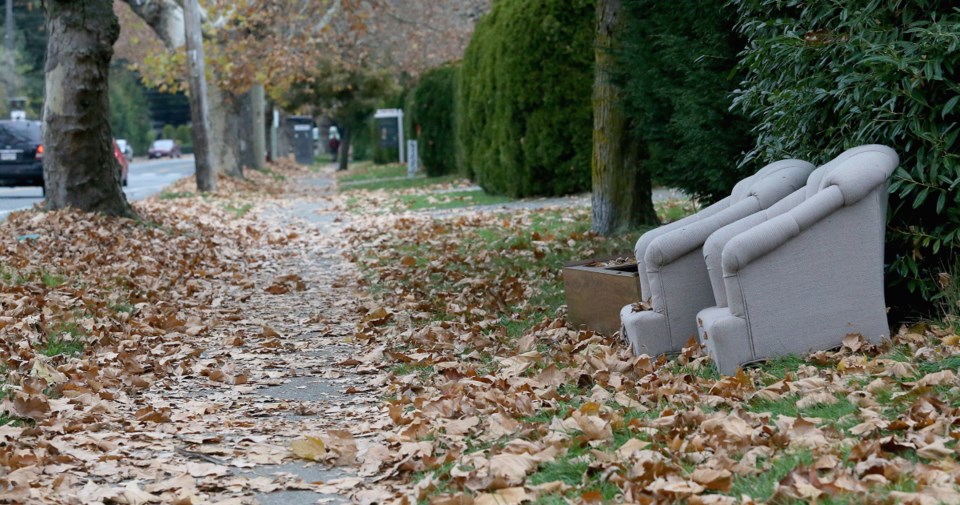Victoria taxpayers continue to pay up to $150,000 a year to remove old couches, mattresses and other used items that residents leave at the curbside or dump on public property, city staff said Monday.
Fraser Work, director of engineering and public works, said the city began intervening last year by posting signs in “trouble spots” where a lot of the dumping occurs, but the problem persists.
“It’s an issue,” he said. “It’s not going away fast enough and until we find some of the ways to either educate, enforce and change the behaviour, we’re going to be stuck with this burden for a little while longer.”
In addition to the ongoing cost to taxpayers, curbside dumping creates an eyesore and often results in items being damaged to the point where they can’t be recycled, Work said.
“We lose the opportunity to extend the life of those materials, because they might be out on the curb when it rains and then no one will pick them up if the person who put them there was intending that they might be a freebie for someone else.”
Coun. Charlayne Thornton-Joe, who raised the issue during budget discussions Monday, noted that Victoria is particularly prone to the problem.
“We are a university town and a high-rental town where it seems like every cycle, we see [items] discarded in parks or on streets.”
She questioned whether the city could be doing more to fix the problem, given the unsightly mess and ongoing cost to taxpayers.
“I would like to find some solutions so I’m not mentioning it every year,” she said.
Work noted that other municipalities struggle with similar problems and have tried different approaches, some of them more controversial than others.
Langley, for instance, launched its “Don’t be an Idiot” campaign three years ago in an effort to dissuade people from illegal dumping.
“They were trying to go after a harder-hitting social program for a change, about people discarding stuff and ruining the public realm,” Work said. “We didn’t move that forward for a recommended communications approach.”
The city is, however, investigating its powers to crack down on the problem through its bylaws and enforcement program.
As well, staff are looking at whether discarded materials can be dismantled and the parts recycled, rather than shipping everything to the landfill.
“We have to really be mindful of the health implications of this one,” Work said, noting that the materials could be contaminated with pests or debris.
He added that residents already have a number of ways to dispose of materials responsibly by advertising them for free on websites, or taking them to the landfill or a recycling centre.
A communications strategy could be one way to change people’s behaviour and encourage them to get rid of materials properly, he said. “Essentially, the programs that currently exist make it possible for the community to responsibly dispose of and manage these materials.”



